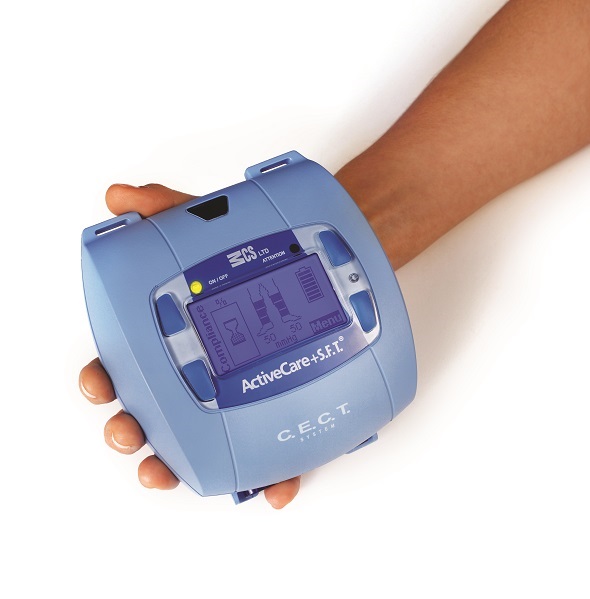Nov 11 2015
Medical Compression Systems, Inc. (MCS), today announced new data further validating the use of the ActiveCare® DVT prophylaxis compression system following total joint replacement procedures. 
The study results demonstrate that a risk stratification protocol employing a synchronized mobile compression and aspirin regimen was associated with low rates of venous thromboembolism (VTE), lower rates of adverse events and reduced overall costs compared to a group treated with aggressive anticoagulant agents.
Data were presented as a podium presentation and a poster this week at the American Association of Hip and Knee Surgeons (AAHKS) 25th Annual Meeting, taking place in Dallas from November 5-8.
"We've established through previous studies that prophylactic treatment with mobile compression and aspirin following total joint replacement can reduce the occurrence of VTE and decrease adverse events, infections and bleeding complications in patients undergoing total joint replacement," said Richard Iorio, M.D., primary study author and professor of orthopedic surgery at NYU School of Medicine.
"These results are significant in that they represent a large study population of more than 2,600 patients and are the first to demonstrate significant reductions in hospital costs, which support the hypothesis that a risk stratification protocol can advance patient-specific therapy and enhance the delivery of value-based care."
The study was designed to determine if utilizing a risk-based VTE chemoprophylaxis protocol would improve prevention of deep vein thrombosis (DVT) and pulmonary embolism (PE), quality metrics and bleeding-related complications in patients undergoing total joint arthroplasty.
The retrospective review evaluated 2,611 patients divided into two cohorts: cohort 1 consisted of 1,203 patients who had previously been treated with an aggressive chemoprophylaxis protocol (Enoxaparin, Rivaroxaban, Warfarin) and cohort 2 consisted of a risk-stratified group of patients either undergoing treatment with prophylactic synchronized mobile compression and aspirin (n=843) or aggressive chemoprophylaxis (n=565).
Results demonstrated that patients in the risk stratified protocol (cohort 2) had a lower incidence of VTE than the group treated with anticoagulation and also experienced fewer adverse events, readmissions, infections and bleeding-related complications.
Hospital costs were significantly lower in the synchronized mobile compression and aspirin subgroup of cohort 2 (p<0.001) and overall costs were lower in the risk stratified cohort, though they did not reach statistical significance (p=0.674).
"These data further underscore previous results from over 4,000 patients demonstrating that use of post-surgical ActiveCare synchronized mobile compression therapy is a safe and effective modality to prevent VTE while minimizing the bleeding complication risks following total joint arthroscopy procedures," said Timothy A. McCarthy, chief executive officer, MCS.
"We are encouraged by these results showing significant cost savings opportunities and remain committed to adding clinical and economic value to the entire healthcare system."